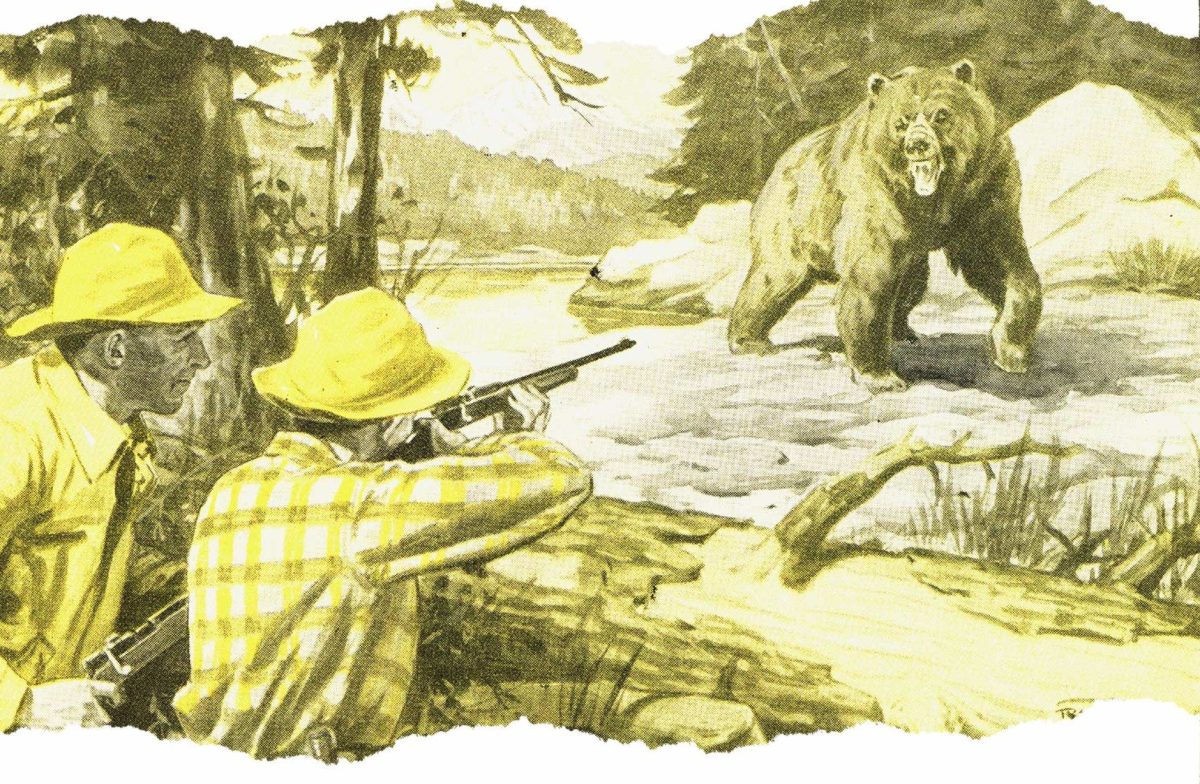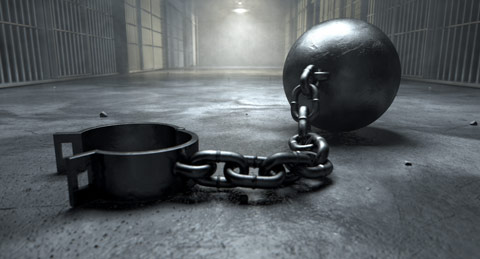Freeze Response: Why You Get Stuck and What to Do

Podcast: Play in new window | Download
If you’ve ever felt overwhelmed by preparedness and life in general, you’re not alone.
I received a message from someone in the Mind4Survival community that said:
“I feel so overwhelmed by everything I need to do, and it keeps me from doing anything.”
That kind of overwhelm—the kind of overwhelm that keeps you from doing things because it paralyses your ability to take action is more common than you might think. And it makes sense. You’re juggling family, work, stress, life in general—and on top of that, you’re supposed to plan and prepare for disasters, become a jack-of-all-trades at everything in life—it probably feels like it are never going to end.
Sometimes, there may be so many responsibilities and possibilities in front of you that it all becomes overwhelming. Which one do you choose? What do you do next? You don’t have enough time. Your family wants to do X, and you know that’s going to get in the way of your prepping. You have stuff to do!
How are you supposed to get things done? There’s too much, and at the bottom of it all might be the most important fact of all. In your mind—YOU ARE NOT AS PREPARED AS YOU SHOULD BE! What the heck? How do I manage this!?
It Feels Terrible!
All of that sucks because it doesn’t feel good. That literally makes you experience the physical sensation of discomfort. Why? Because your mind doesn’t know what to do. It’s exactly as you said, you’re overwhelmed.
While it may seem easy, there’s a great deal of emotion and thought that go into managing life and getting prepared; plus, the consequences of not being prepared can feel so severe that your mind just stops, it locks up.
The bad news is, you’re human, and this happens to everyone. The good news is that with effort, you can work on it, and it will improve over time. The even better news is that by working on this now, feeling overwhelmed, which leads to paralysis now when it’s an inconvenience, will help get you better prepared to handle it in the moment, when the chips are down, and it’s your or your loved one’s well-being that’s on the line.
There’s a lot to unpack with this. And, if you take what I discuss here, think about it, sit in it, and work on it, you’ll learn how to use this as a force multiplying strength that not only helps you in a critical situation, but also helps you live a better life by more effectively managing your overwhelm paralysis.
This is a big one. Let’s get into it.
TL;DR: Feeling overwhelmed can trigger a freeze response. Spot the signs, then use small, deliberate steps to break free and stay effective.
Quick Look at What You’ll Learn
Welcome to the Black
To start with, when you feel so overwhelmed that it’s almost as if you and your brain are stuck, and moving forward is the most uncomfortable thing you can imagine. Perhaps it feels like there’s a wall or a force field between you and making decisions and taking actions. You’re thinking that it shouldn’t be this hard. What’s the problem?
The problem is that your mind is stuck. It’s stuck because either there is so much going on, or what is happening is so important that you can’t get it wrong, or it’s possibly a combination of both—that your mind and your decision-making process are frozen. Frozen? Yes, slow to move, stuck, paralyzed—frozen.
What would cause that? Why are you frozen? For those of you who have been following me for a while, I hope that’s a rhetorical question. For those of you who don’t know the answer, it’s actually fairly simple.
Fight, Flight, or Freeze
When you feel so overwhelmed by everything that you need to do that it prevents you from taking any action, you’re temporarily experiencing (or living in) an ongoing autonomic nervous system reaction—fight, flight, or freeze response. In this case, you’re in a freeze response.
And while that stinks for you at the time, it is great for illustrating the fact that, unlike what many people think, a nervous system response isn’t an all-or-nothing response. A central nervous system response can range from being slightly bothersome and having a very minor impact on your decision-making and action-taking, or it can completely shut you down so that you can’t do anything.
That’s being in the black. That means you’re not being as effective as you can be if you weren’t in the black. In the preparedness world, we tend to think of being in the black and our levels of awareness as they relate to responding in the moment to an emergency, a threat, or a life-or-death situation.
However, as this listener’s question, “I feel so overwhelmed by everything I need to do, and it keeps me from doing anything,” shows, getting swallowed by a fight, flight, or freeze response can happen in good times and bad.
Understanding the Freeze Response
Freeze happens when your brain hits the brakes. You don’t run. You don’t fight. Depending on how fired up your nervous system is, your thinking might slow down—or stop completely. You stall. You loop. You’re stuck, watching life happen but not able to do a thing.
You’re not lazy, weak, or incapable. Your system is locked up. That’s how it works. Your nervous system kicks in and freezes you to protect you. It’s our basic survival instinct.
Predators key in on movement. Stay still, and you disappear. Move, and you stand out. So your brain shuts things down—freeze now, maybe live. That reflex evolved to make you invisible to whatever was hunting you. That’s when we entered the black, frozen, unable to act on our behalf until we’re able to pull ourselves out of it.
Ancient Instincts and Modern You
Now? It fires in the wrong context. There’s no T. rex outside. You’re freezing because your brain mistakenly perceives the chaos of daily life as an ongoing series of threats.
Your nervous system wasn’t built for this world. Ancient-you dealt with short bursts of danger. Modern-you faces constant stress. Traffic. Bills. Loud kids. Bad bosses. Political doom and gloom. Lack of perceived preparedness. It all registers as a threat with your primal, protective brain.
As the pressure builds up, your brain thinks you’re in serious danger. And after enough days, weeks, or years of that, it short-circuits. Everything feels like a threat. Eventually, it doesn’t know what to do to keep you safe, so it just shuts you down.
It forces you to take a tactical pause so it can make sense out of what’s happening. It’s meant to give you time to regroup and get on top of things. Unfortunately for ancient-you, modern-you can’t stop—your world, along with your daily lives, must go on.
And going back to the question that started this, that’s why you feel so overwhelmed by everything you need to do, and why it keeps you from doing anything.
The Down Side of the Freeze Response
In critical moments, such as an out-of-control bus heading your way, the freeze response can be deadly. In everyday life, it creates frustration, shame, and more overwhelm. It becomes a feedback loop. You feel stuck, so you do nothing. You do nothing, so you feel more behind. And that brings on more stress, making you freeze even more.
Life is full of these moments. You sit down to get something done, but you end up scrolling for an hour. You mean to take care of a task, but suddenly, for no clear reason, you feel too tired. That’s the freeze creeping in.
Sometimes it just keeps you from one thing. At other times, it shuts you down completely, leaving you unable to do anything at all. And the more stress piles up—or the more serious the stakes feel—the stronger that freeze can hit.
Action Steps to Break the Freeze
As you work to improve breaking your freeze response in daily life, you’re also training yourself for critical moments. Practicing in the small, everyday stalls builds the same skills you’ll need when it’s real—when someone’s bleeding, when the power’s out, when a split second matters.
Recognize When You’re in Freeze
The key with a central nervous system response is to train your body and mind to spot when you’re slipping into it. Then take the mental, mindset actions to pull yourself out of it.
Recognizing it is the first step—both in everyday life and in emergencies.
Everyday Life Stress
When it comes to dealing with the freeze response in relation to everyday life stress, not-in-the-moment survival, you might notice:
Everyday Life Signs
- Decision fatigue
- Foggy thinking
- Feeling physically heavy
- Avoiding the task in front of you
Everyday Life Actions:
- Name it: Say, “I’m freezing up.” Owning it makes it easier to move.
- Breathe and reset: Take one deep breath. Exhale slowly. This interrupts the loop and clears your head.
- Change state: Stand, stretch, or walk. Physical action resets your mind.
- Do one thing: Pick the smallest step—write one word, move one item, make one call. Any action breaks the stall.
In Emergencies:
When you get good at breaking the freeze in daily life, you’re also training yourself for real-world critical moments. If you’ve practiced snapping out of that frozen state when it’s just a list of to-dos, you’ll be quicker to reset when it’s a real emergency—when someone’s bleeding, when the power’s out, when a split second matters.
It’s not about never freezing. It’s about building awareness and habits that help you snap out of it more quickly. It’s about building the awareness and habits that help you thaw out faster.
Emergency Signs
- Locked up—unable to act
- Thoughts looping, stalling, spinning in the moment
- Breathing goes shallow, or you catch yourself holding your breath
Emergency Actions
- Scan and breathe: One deep breath, then look for the most immediate threat.
- Lock on priority: Identify the one action that matters most—stop bleeding, get out of danger, call for help.
- Act fast: Do it now. Momentum shatters the freeze.
- bRun small drills. Picture yourself acting under stress. Practice builds faster recovery when it’s real.
The Bottom Line
Freeze happens to everyone—whether in daily life or in emergencies. It’s not weakness, it’s instinct. The key is recognizing when you’re stuck, then taking action to break it. Small steps in everyday life train you for big moments when seconds count. Awareness and deliberate action turn freeze from a liability into a skill you can manage. That’s how you get moving again, and that’s how you build real confidence.
Additional Resources
Freeze Response: Frequently Asked Questions
What is the freeze response in preparedness?
The freeze response is part of your autonomic nervous system’s reaction to stress—like fight or flight. When overwhelmed, your brain can shut down decision-making to protect you, leaving you stuck or paralyzed.
Why do I feel frozen when I have too much to do?
Your brain sees stress and chaos as threats. When the load gets too heavy, your nervous system reacts by freezing. It’s not weakness—it’s instinct trying to keep you safe.
What are signs I’m stuck in a freeze response?
Common signs include decision fatigue, foggy thinking, physical heaviness, looping thoughts, and avoiding tasks. In emergencies, you may feel unable to move or act at all.
How can I break out of the freeze response?
Start small. Take one deep breath. Name what’s happening (“I’m freezing up”). Move your body. Do one simple action—any movement helps restart your system.
Can I train myself to handle freeze better?
Yes. Practicing how to recognize and break freeze in daily life helps you recover faster in real emergencies. Small drills and awareness build confidence over time.
Read the full article here









